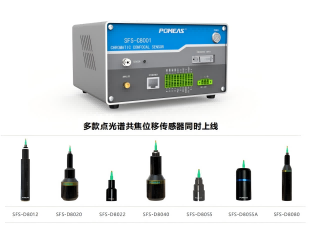In the field of electronics manufacturing, the quality of printed circuit boards (PCBs) is of paramount importance. The thickness of the resin layer on the PCB board directly affects the performance and reliability of the board. Spot spectral sensors bring a new solution to the measurement of resin thickness on PCB boards with their unique advantages.


Importance of Resin Thickness Measurement on PCB Boards
The resin layer on a PCB board plays an important role in protecting circuits, insulating and enhancing mechanical strength. Uneven or substandard thickness of the resin layer may lead to the following problems:
1. Unstable electrical performance: Uneven thickness may affect the impedance and signal transmission of the circuitry, leading to malfunctioning of electronic devices.
2. Deterioration of insulation performance: A resin layer that is too thin may not provide sufficient insulation protection, increasing the risk of short circuits.
3. Insufficient mechanical strength: too thin a resin layer may make the PCB board easily damaged during use, reducing its service life.
Therefore, accurately measuring the thickness of the resin on the PCB board is critical to ensuring the quality and performance of the PCB.
POMEAS Spot Spectral Confocal Sensors Principle of Operation and Advantages
A point spectral sensor is a high-precision measurement device based on spectral analysis. It emits a light beam of a specific wavelength to the surface of the object to be measured and then receives the light signal reflected back. Based on the change in wavelength of the light signal, the thickness of the object can be accurately measured.
The Spot Spectrum Sensor has the following advantages in measuring the thickness of PCB board resin:
1、High-precision Measurement: Capable of achieving sub-micron measurement accuracy, accurately measuring small thickness variations in PCB board resins.
2、Non-contact measurement: It will not cause any damage to the PCB board, avoiding the scratches and damages that may be brought about by traditional contact measurement methods.
3、Fast measurement: can complete the measurement of PCB board resin thickness in a short time, improve production efficiency.
4、Adaptable: Applicable to different types and specifications of PCB boards, as well as different thicknesses of resin layer.
5、Easy to operate: the sensor's operation interface is friendly and easy to use, no need for professional technicians to operate.
The thickness of the resin layer is measured using a POMEAS Point Spectrum Confocal Sensor. By installing the sensor on the production line, the thickness of PCB board resin can be monitored in real time, and products with abnormal thickness can be detected and adjusted in time.
In practice, the point spectrum sensor provides accurate and reliable measurements with higher accuracy and stability than traditional measurement methods. At the same time, the sensor's rapid measurement capability also greatly improves production efficiency and reduces production costs.
Product recommendation
TECHNICAL SOLUTION
MORE+You may also be interested in the following information
FREE CONSULTING SERVICE
Let’s help you to find the right solution for your project!


 ASK POMEAS
ASK POMEAS  PRICE INQUIRY
PRICE INQUIRY  REQUEST DEMO/TEST
REQUEST DEMO/TEST  FREE TRIAL UNIT
FREE TRIAL UNIT  ACCURATE SELECTION
ACCURATE SELECTION  ADDRESS
ADDRESS Tel:+ 86-0769-2266 0867
Tel:+ 86-0769-2266 0867 Fax:+ 86-0769-2266 0867
Fax:+ 86-0769-2266 0867 E-mail:marketing@pomeas.com
E-mail:marketing@pomeas.com
